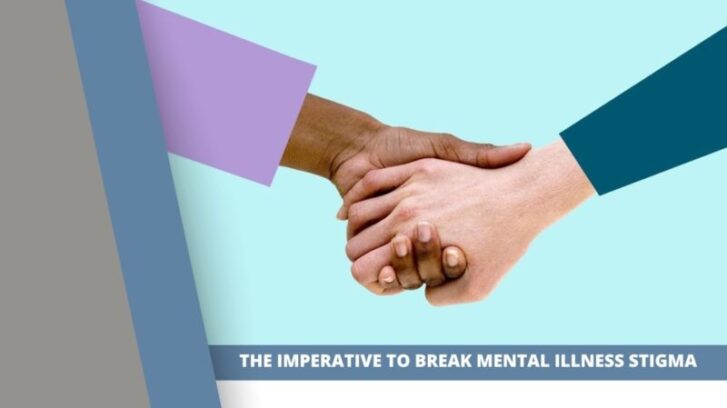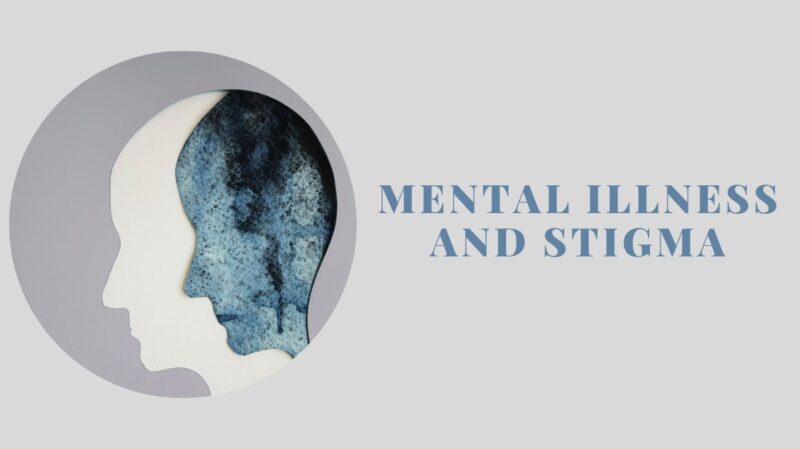Every person holds a universe within them, complete with a complex web of thoughts, feelings, and experiences. However, when these internal workings deviate from the expected norm, the world can become a place of misunderstanding and judgment. This is especially true for mental illness, an issue that affects millions around the globe but is often enshrouded in stigma and misperception.
Despite the vast strides made in scientific understanding and treatment approaches, societal attitudes towards mental health disorders have lagged, often exacerbating the suffering of those affected.
The stigmatization of mental illness is a significant and pervasive issue that has far-reaching consequences, hindering individuals from seeking help, contributing to their isolation, and discouraging wider societal understanding.
This article will delve into the importance of breaking the stigma surrounding mental illness, presenting a comprehensive overview of the issue and underscoring the role each one of us plays in fostering a more empathetic and understanding society.
Mental Illness and Stigma
The World Health Organization estimates that nearly one in four people will be affected by a mental disorder at some point in their lives, making it a universal concern that touches virtually every community.
Mental illnesses, ranging from depression and anxiety disorders to schizophrenia and bipolar disorder, are medical conditions affecting a person’s thinking, feeling, mood, and ability to relate to others. Despite the widespread prevalence of mental health conditions, misconceptions persist, often fueled by media misrepresentation, cultural beliefs, and lack of awareness.
These misconceptions form the bedrock of stigma, a mark of disgrace associated with a particular circumstance, quality, or person. In the case of mental illness, stigma manifests as prejudiced attitudes and discriminatory behaviors towards individuals with mental health disorders.
Stigma is not merely an abstract concept; it has real, tangible impacts on those who experience it, shaping their quality of life, opportunities, and even their recovery trajectory.
Impacts on Individuals and Society
Stigma surrounding mental illness is a virulent oppressor, breeding fear, mistrust, and misunderstanding. It silences conversations, promotes isolation, and can even lead to self-stigmatization, where individuals internalize the negative beliefs and stereotypes about mental illness.
This can result in low self-esteem, decreased self-efficacy, and an overall poorer prognosis. The detriments of stigma are not confined to the personal sphere but ripple outwards, affecting interpersonal relationships, social integration, and professional opportunities.
At the societal level, stigma can lead to the marginalization of people with mental illness, depriving them of their rightful opportunities to contribute to their communities. Stigma influences public policy and funding, often relegating mental health services to the backburner in health and social care systems. As a result, many people with conditions are not given access to the care they need, exacerbating social inequalities and health disparities. This exclusionary pattern underscores the urgency of dismantling mental health stigma for a more inclusive society.
Raising Awareness and Promoting Understanding
Addressing the stigma associated with mental illness requires comprehensive and concerted efforts at multiple levels. Awareness and education are paramount, as understanding can be a powerful antidote to prejudice.
By educating the public about mental health conditions and debunking myths, we can replace fear and misunderstanding with empathy and respect. This includes accurate representation in the media, comprehensive mental health education in schools, and public awareness campaigns.
Promoting open dialogue about health is another crucial strategy. For too long, mental health has been shrouded in silence, contributing to stigma and misunderstanding. By fostering open conversations about mental health, we can normalize these issues, encouraging those affected to seek help without fear of judgment. This can be achieved through personal storytelling, advocacy, and the support of influential figures speaking out about their experiences.
Role of Healthcare Providers and Policymakers
Healthcare providers and policymakers wield significant power in shaping attitudes towards mental illness and the experience of those affected. Therefore, they bear a special responsibility in breaking down stigma.
Healthcare providers must ensure their practice is free from bias and discriminatory behavior, offering compassionate and equitable care for all patients. They should also be proactive in providing education about mental health conditions and treatment options, as well as advocating for their patients’ rights.
Policymakers, on the other hand, have the power to influence societal attitudes through legislative action and policy-making. This includes ensuring mental health services are adequately funded and accessible, implementing anti-discrimination laws protecting individuals with conditions, and promoting education and awareness.
By implementing such policies, they can create an environment that supports and respects individuals with mental health conditions rather than stigmatizes them.
Individual Responsibility and the Power of Empathy
While institutional action is vital, breaking the stigma surrounding mental illness is not a task that can be left solely to professionals and policymakers. It requires each of us to play our part.
This begins with education, cultivating an understanding of mental health conditions, and challenging our preconceived notions. But more than this, it requires empathy – the ability to understand and share the feelings of others.
Empathy can be a transformative force in breaking down stigma. It allows us to see beyond labels and stereotypes, recognizing the humanity in each person.
When we approach those with mental health conditions with empathy rather than judgment, we can help foster a society where mental health is understood, accepted, and supported. Breaking mental health stigma, therefore, is not just a societal imperative but an intensely personal one, a call for each of us to extend our understanding, our patience, and our compassion.
The Role of Media
Media outlets wield an enormous influence over public perception. Unfortunately, these platforms have often perpetuated harmful stereotypes about mental illness, contributing significantly to stigma. Such portrayals can exacerbate public fear and misunderstanding, further marginalizing individuals with mental health conditions.
However, the media also have the potential to serve as a powerful tool in combating stigma and promoting understanding.
Responsible journalism and accurate media portrayal of health conditions can significantly aid in de-stigmatizing mental illness. This involves providing accurate information, avoiding sensationalism, and presenting individuals with mental health conditions in a humanized and respectful manner.
Moreover, media outlets can actively promote awareness and education, providing a platform for advocacy efforts and personal narratives that foster empathy and understanding.
The Impact of Workplace Culture on Mental Health
Workplaces are a critical arena for addressing stigma. Issues can significantly impact an individual’s job performance and overall career trajectory. Yet, many employees struggle in silence, fearful of discrimination, misunderstanding, or reprisal. An unhealthy workplace culture can exacerbate mental health issues, while a supportive one can promote recovery and well-being.
Creating a stigma-free workplace involves fostering an environment that supports health. This includes implementing policies that protect employees from discrimination, providing access to resources, and promoting open dialogue about mental health. Moreover, leaders can play a critical role in setting the tone for a supportive workplace culture, demonstrating through their actions that is a priority, and that seeking help is not a sign of weakness but a step towards wellness.
The Power of Peer Support
The importance of peer support in the fight against mental health stigma cannot be overstated. Peer support refers to assistance provided by individuals who have experienced conditions to those currently struggling. This kind of support can be incredibly powerful, offering hope, understanding, and practical strategies for managing conditions.
Conclusion
Shattering the stigma surrounding mental illness is a shared responsibility, one that calls for action from all sectors of society. It is a pressing issue, touching on fundamental human rights, societal inclusivity, and public health. By fostering understanding, empathy, and respect, we can work towards a world where mental health conditions are no longer hidden in the shadows but brought into the light of societal acceptance and understanding.
Ultimately, breaking the stigma surrounding mental illness is not merely about changing attitudes, but about creating a world where everyone, regardless of their mental health condition, is valued, respected, and given the opportunity to lead fulfilling lives.















